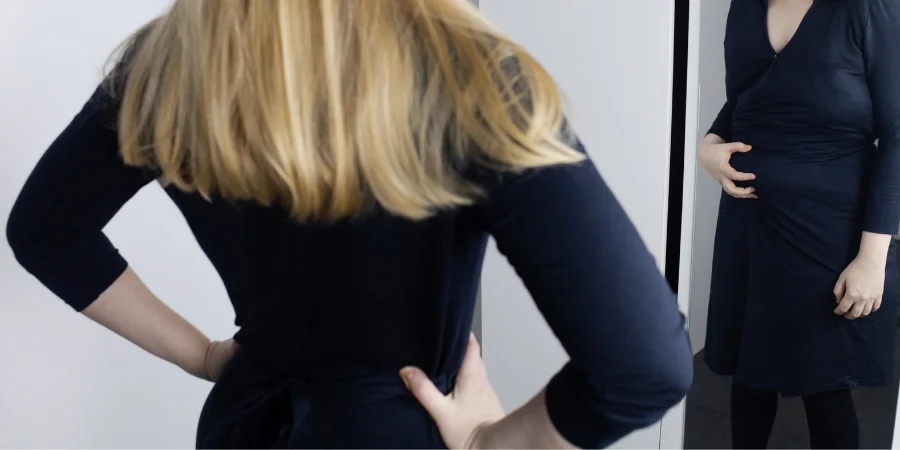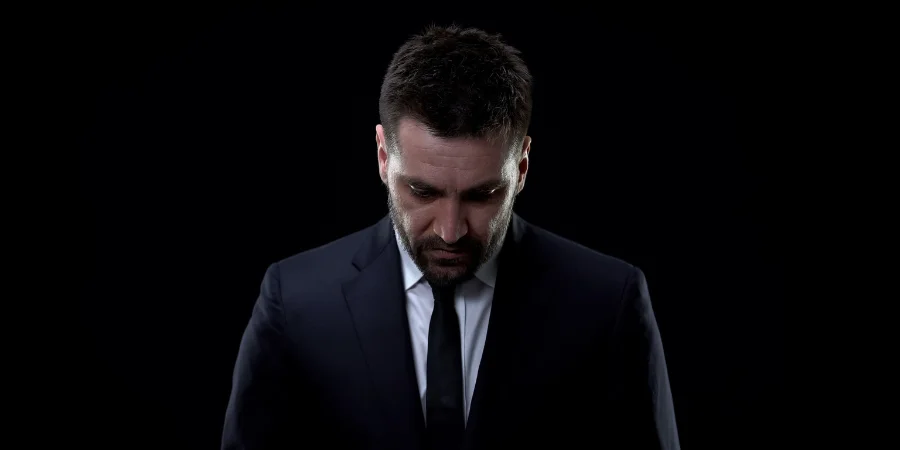Last Updated:
February 25th, 2025
BDD and Addiction | Symptoms and Treatment
Body dysmorphic disorder (BDD) is a very serious condition which leads those suffering to become fixated on a defect or flaw in their appearance that, while being very clear to them, is either incredibly minute or unnoticeable to outsiders. Although these perceived imperfections may not seem too important to others, for those with the disorder, it can become an obsession which interferes with all aspects of their lives.
For those who are struggling with pre-existing mental health conditions, the likelihood of developing an addiction can increase. If an individual with body dysmorphic disorder also struggles with addiction, this is referred to as a co-occurring disorder. To learn more about BDD and addiction, how they inform one another, and how to seek support if you or a loved one needs help in overcoming this affliction, read on for more information.
What is body dysmorphic disorder?
Everyone will experience anxiety about their appearance at one time or another, especially in today’s world of social media, with posts promoting an appearance that, to some, can seem disheartening and impossible to accomplish. However, body dysmorphic disorder is much more than this, and those struggling with it can see a distorted image of themselves which is harmful, unstable, and constantly changing. Around five out of every one thousand people suffer from BDD, but it is known to be especially prevalent in young women. Recent findings suggest that around one in eighteen (5.6%) of young women suffer from the disorder, and the number of individuals suffering from the condition seems to be rising every year.
BDD can leave the sufferer afraid to leave their home, fearful of how they will be perceived by others. This condition can have a considerable impact on self-concept, as the person with the disorder will often feel disgusted at the thought of their own appearance or reflection, finding it very difficult to engage with those around them as a result. For those encountering these difficulties, addictive substances can be used to release their inhibitions, or ease their distress among larger groups. This can manifest as addiction if left untreated.
Some signs and symptoms associated with BDD include:
- Constant worry about personal appearance, to the point you struggle to fully focus on any other aspects of your life.
- Experiencing intrusive thoughts about one or several parts of your body.
- Believing that your body is somehow out of proportion, disfigured, or damaged.
- Relying on habitual behaviours to keep your worries under control.
- Spending a lot of time comparing your appearance with other people’s.
- Looking at yourself in mirrors often or avoiding them altogether.
Unfortunately, BDD can often be misinterpreted and difficult to fully understand for those without the condition. Because of this fact, BDD is recognised as a hidden disorder, as those struggling will often seek to conceal their condition from others, too fearful to seek the appropriate support in overcoming their affliction.
Is there a connection between addiction and BDD?
Addiction is a chronic condition which can leave individuals compulsively seeking out a behaviour or substance, even if it is causing noticeable damage to their mental and physical health. While everyone will have a different basis for developing an addiction, some reasons that the condition can manifest include:
- Poor coping skills, frequently feeling overwhelmed or emotionally strained.
- Difficulty engaging with others.
- Lack of confidence.
- Trauma sustained from past experiences.
While addiction is a condition that anyone can fall victim to, it seems it is more likely to appear in those with pre-existing mental health problems. This means that those with BDD are more at risk of developing an addiction.
Both addiction and body dysmorphic disorder are conditions that can either inform or exacerbate the other. Perhaps an individual with BDD is relying on illicit substances to cope with their disorder, seeking an escape from their condition through addiction. However, while this might seem like the only way out of negative emotions and thoughts associated with the affliction, this will only provide a temporary solution to a long-term problem.
To find out more about the connection between BDD and addiction, look at the table below:
| People with both BDD and addiction can struggle with self-perception, using their condition to mask or cope with issues like: |
|---|
| Low self-esteem |
| Feelings of shame or inadequacy |
| Painful childhood experiences, such as bullying, abuse, or neglect. |
| Fears that others might tease, label, or reject them. |
| Other co-occurring disorders, such as anxiety or depression. |
Do I need support for my co-occurring disorder?
If you have already sought support for BDD and are now navigating an active addiction alone, it is vital that you engage in treatment to overcome this condition. Addiction is a debilitating illness, one that can lead to the worsening of pre-existing conditions if not properly managed.
By pursuing a course of addiction treatment, you will have access to a variety of therapeutic interventions designed to help you understand the reasons you turned to addictive behaviours in the first place, employing methods to ensure that you will never need to use them again in the future. As both addiction and BDD are two conditions very closely linked, it is vital that you confront them both at a rehab centre designed to deal with addiction, as this will ensure all-around wellness for your body, mind, and soul.
Common misconceptions about BDD and addiction
Everyone will suffer from body dysmorphia or some sort of addiction at one point or another…
People can often have a hard time separating BDD from low self-esteem or insecurity. However, while these factors play a part in the development of the disorder, there is far more to BDD than people might think. For example, while everyone is likely to suffer from a lack of self-confidence at some point in their lives, BDD will affect those suffering in a different way, leaving them with a persistent, debilitating sense of shame about their appearance that can make it near-impossible for them to engage with the outside world without being affected by the condition.
In much the same way, addiction is a chronic illness that alters functions in the brain, rewiring how it both manages and understands reward. Those struggling with addiction will begin to see their whole world change because of their condition, neglecting responsibilities in favour of their addiction and losing interest in all activities which do not revolve around the substance or behaviour.
To state that everyone struggles with either BDD or addiction at some point in their lives is not just untrue but also takes away from the weight of these afflictions, as these conditions are very serious and should not be taken lightly.
Addiction only relates to drugs or alcohol, and BDD is the same as an eating disorder…
Most addictions that we see advertised tend to revolve around drugs or alcohol. However, it is also possible for individuals to become dependent on behaviours, relying on them as an outlet to cope with everyday life. Some common behavioural addictions include:
As body dysmorphic disorder can directly influence the way that individuals perceive their personal appearance, it might seem reasonable to assume that this is the same as an eating disorder. However, BDD is an anxiety disorder characterised by intrusive thoughts and obsessive worries about perceived flaws in physical appearance.
An eating disorder is classified as a behavioural addiction, based on complex and unhealthy behaviours surrounding food, with body image issues playing a role in this condition. While these conditions are not the same, symptoms seen in BDD can present themselves in eating disorders. Therefore, they are treated as eating disorders within our centres.
BDD and addiction are all about self-obsession…
While BDD is a disorder centred on personal appearance, this does not make it the same as vanity; In fact, it is the antithesis of it. While a self-obsessed individual might feel prideful and confident about their appearance, someone struggling with BDD can suffer from shameful and intrusive negative thoughts about their appearance, often hyper-focusing on their perceived flaws to the point that it interferes with all aspects of their daily lives.
Addiction, on the other hand, is a chronic illness that alters the chemistry of the brain, causing individuals to become compulsively driven to continue abusing a substance or behaviour, even if it is causing them pain. Therefore, to state that those who are suffering from addiction and BDD are self-obsessed would be to ignore the realities of this illness and all the strength that it takes to overcome it.
Treating BDD and addiction
If you are struggling with BDD and addiction, there is help out there, and through regular support and therapy, you can gain a new perspective on recovery as you move forward in your journey toward health and healing. However, it is important that before you seek treatment, you first determine whether BDD or addiction is your primary condition so that you can find the most effective programme to match your specific needs.
For those suffering from co-occurring illnesses, it is usually one disorder that fuels the others, and this is referred to as a primary condition. If you rely on addictive substances (such as drugs or alcohol) to cope with uncomfortable symptoms associated with body dysmorphic disorder, this makes BDD your primary condition. On the other hand, if your dependence seems to have triggered or induced symptoms relating to BDD, this makes addiction your primary condition.
At Primrose Lodge, we seek to treat your primary disorder; however, as long as you have been diagnosed with BDD before entering our centre, many therapeutic interventions we include at our facility are widely transferrable for treating BDD as well as addiction. Some of the treatments that we provide include:
- Cognitive Behavioural Therapy (CBT) – Both BDD and addiction can manifest from negative patterns of thinking, sending individuals into a spiral of dark and uncomfortable emotions. Fortunately, however, CBT helps to offer a new perspective, helping those struggling to replace their negative feelings with more productive, positive ones.
- Group Therapy – For those entrenched in BDD and addiction, the disorder can be all-encompassing, consuming every aspect of the sufferer’s life. By engaging with other individuals who are undergoing similar issues, this can be empowering and demonstrate the strength that comes from support from other people, working alongside them and watching their successes as they move further along in treatment.
We are here to help
Here at Primrose Lodge, we can understand just how difficult it can be to navigate a condition like BDD beside the weight of addiction. However, with a team of addiction experts, trained to support clients with a variety of co-occurring disorders, our environment is surrounded by empathy and understanding. While the path might seem rocky right now, we would like to assure you that regular support and guidance at our centre can make all the difference in helping you to see the other side of addiction.
If you would like to learn more about Primrose Lodge and what we can offer you, do not hesitate to contact us today.





